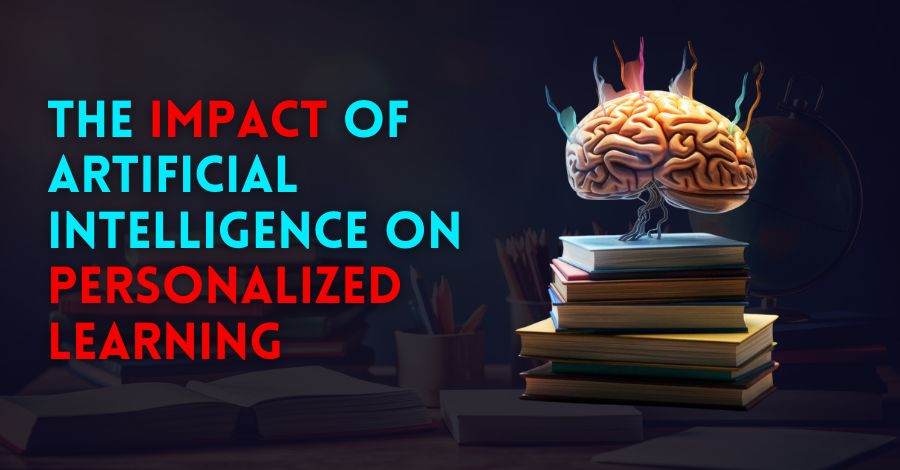Introduction:
Remember struggling through textbooks that didn’t connect with you?
Or do you wish your classes catered more to your individual learning style?
Well, those days will come to an end now because artificial intelligence (AI) is making drastic changes in the education sector to develop a way for personalized learning to be a reality.
What is Personalized Learning?
Imagine a classroom where the curriculum adapts to your strengths and weaknesses, not the other way around. That’s the significance of personalized learning. It’s about tailoring educational experiences to each student’s unique needs, learning pace, and preferred style.
Personalized learning changes the traditional classroom script. Instead of a one-size-fits-all approach, it recognizes that every student is unique. This means considering individual learning styles, paces, and strengths.
Imagine a classroom where visual learners watch educational videos, auditory learners participate in class discussions, and kinesthetic learners build models to grasp scientific concepts. Personalized learning caters to these preferences, ensuring everyone has the opportunity to learn effectively.
It also acknowledges that students come with different prior knowledge and needs. By identifying these gaps, teachers can provide targeted support or advanced challenges, ensuring all students progress on their own learning journeys.
This student-centred approach encourages engagement and empowers learners to take ownership of their education.
Benefits of a Personalized Approach:
-Boosts Engagement: Students are more likely to be motivated and participate actively when learning feels relevant and engaging.
-Improves Retention: Personalized learning helps students grasp concepts more effectively, leading to better information retention.
-Promotes Confidence: Personalized learning builds student confidence in their abilities by acknowledging individual strengths and addressing weaknesses.
-Empowers Learners: It gives students more control over their learning journey, promoting a sense of ownership and responsibility.
The Role of AI in Personalizing Education:
So, how does AI fit into this exciting picture? AI is a powerful tool for educators, helping them personalize learning experiences for each student. Here’s how:
-Adaptive Learning Platforms: These platforms use AI algorithms to analyze student data, such as test scores, learning patterns, and preferred learning styles.
Based on this data, the platform recommends personalized learning paths, adjusting the difficulty level, content delivery methods (videos, games, interactive exercises), and even the pace of learning.
It is like a platform that recommends a fun, interactive game to help you learn a challenging math concept you’re struggling with.
-Smart Tutors and Chatbots: AI-powered virtual tutors can provide personalized feedback and answer real-time student questions.
Chatbots can act as learning companions, offering encouragement and guidance throughout the learning process. Like having a virtual tutor who patiently explains a complex topic in a way you understand best.
-Intelligent Content Creation: AI can personalize learning materials by generating content that caters to different learning styles (visual, auditory, kinesthetic).
For example, textbooks that adapt their writing style and include multimedia elements like videos and simulations based on your preferences.
AI-Driven Tools and Platforms for Personalized Learning
Following are the real-world examples of AI-powered personalized learning tools:
-DreamBox Learning: This platform uses AI to personalize math learning experiences for elementary school students. It adapts to individual learning styles and provides real-time feedback, making math engaging and effective.
-Duolingo: This popular language learning app utilizes AI algorithms to personalize user learning paths. It tracks your progress, identifies areas that need improvement, and recommends customized exercises to enhance your language skills.
-IBM Watson Education: This AI platform helps educators personalize learning by analyzing student data and providing insights into their strengths, weaknesses, and learning styles. Teachers can then use this information to tailor instruction and learning materials to each student’s needs.
Challenges and Ethical Considerations in AI-Powered Education:
While AI shows immense potential, there are challenges to address:
-Privacy Concerns: Protecting student data is essential. Secure storage and responsible use of data collected by AI-powered platforms are crucial.
-Algorithmic Discrimination: AI algorithms can memorialize existing biases if not carefully developed. Ensuring fairness and representation in the data used to train AI systems is essential.
-Accessibility: Not all students have access to technology. Bridging the digital divide is required to ensure fair access to personalized learning opportunities.
Case Studies: AI Transforming Learning Outcomes
Following are some examples of how AI is already making a difference:
-A Personalized Learning Experiment: A school district implemented an AI-powered personalized learning program for math. Students using the program showed significant improvement in test scores compared to those using traditional methods.
-Closing the Achievement Gap: An AI-powered tutoring program helped to close the achievement gap between students from low-income families and their more wealthy equivalents.
-Empowering Special Needs Learners: AI-powered tools are being used to personalize learning for students with special needs, catering to their unique learning styles and providing additional support.
The Future of Education with AI:
The future of education with AI is overflowing with exciting possibilities:
-Engaging Learning Experiences: Integration of virtual reality simulations that allow students to explore historical events or travel the world without leaving the classroom.
-AI-Powered Career Guidance: AI can analyze student data and interests to provide personalized career recommendations based on their skills and aptitudes.
-Lifelong Learning Revolution: AI can create personalized learning pathways that adapt and evolve throughout a learner’s life, encouraging continuous learning and skill development.
While challenges exist, AI holds immense promise for revolutionizing education. By personalizing learning experiences, AI can empower students of all backgrounds and learning styles to reach their full potential.
Imagine a world where every student has access to a tailored learning journey that encourages a love of learning and equips them with the skills needed to succeed in the ever-developing world.
Conclusion:
By embracing AI responsibly and ethically, we can create a future where education is truly personalized, engaging, and accessible for all.
When we work together to ensure that AI becomes a powerful force for good, empowering every learner to reach their full potential.
The future of education is bright, and AI plays a key role in brightening the path for a more personalized and enriching learning experience for everyone.

